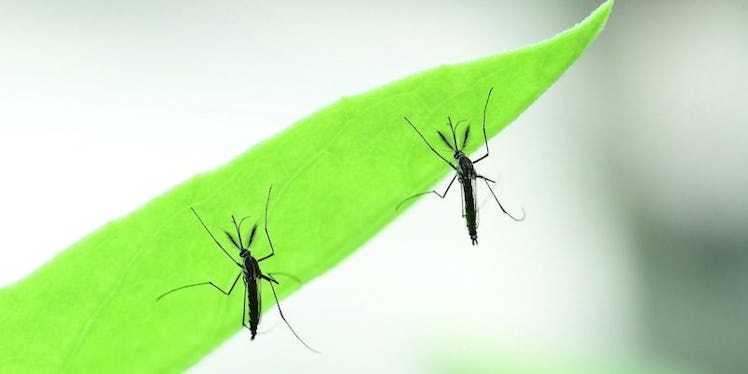
There's Another Alarming Update Concerning The Zika Virus
Eliminating the Zika virus may be a lot harder now that another mosquito was proven to possibly be able to carry the infection.
The primary source of all Zika infections is the Aedes mosquito, which is indigenous to large portions of the Americas as well as the Caribbean.
But according to Reuters, scientists in Brazil were recently able to infect an even more common mosquito, the Culex mosquito, with the virus in a laboratory.
The team injected 200 Culex mosquitoes with rabbit blood containing the Zika virus, and the virus then circulated into the mosquitos' salivary glands.
This suggests the Culex mosquito can transmit Zika through its bite, though more research is needed to confirm this suspicion.
Brazil was hit hard by Zika due to the virus's link to microcephaly, a birth defect that results in an abnormally small head, developmental problems and potentially fatal brain damage.
The South American nation experienced over 640 cases of microcephaly so far and believes the majority came from mothers who were bitten while pregnant.
Culex mosquitoes are reportedly 20 times more common than the Aedes mosquito in Brazil, and they can also be found in the southern US.
This insect is additionally able to survive cold climates, meaning the virus could continue to spread during the winter when the Aedes mosquito is unable to thrive.
Grayson Brown, director of the University of Kentucky's Public Health Entomology Laboratory, told Reuters pesticide efforts against the Culex mosquito would need to be very different from those targeting the Aedes mosquito.
The Aedes mosquito usually resides in areas low to the ground, whereas the Culex mosquito lives in tall trees and other high-elevation areas.
Talking about new pesticide strategies, Brown said,
You can't spray up high the way you can around buildings.
The Brazilian research team will now start rounding up Culex mosquitos to study if they can transmit the Zika virus to humans.
It could be as long as eight months before a conclusive answer is reached.
The Centers for Disease Control and Prevention previously urged pregnant woman to avoid traveling to the following nations: Bolivia, Brazil, Cape Verde, Colombia, Ecuador, El Salvador, French Guiana, Guadeloupe, Guatemala, Guyana, Haiti, Honduras, Martinique, Mexico, Panama, Paraguay, Saint Martin, Suriname, Samoa, Venezuela and Puerto Rico.
Individuals who recently traveled to these nations are also advised to use condoms, since the Zika virus may be transmitted sexually.
Citations: Research indicates another common mosquito may be able to carry Zika (Reuters)